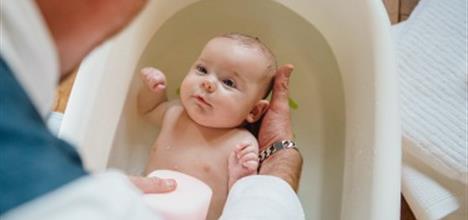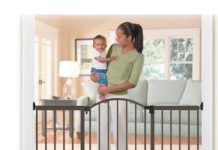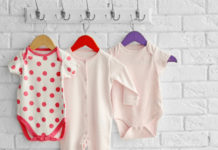There’s nothing quite as exciting in this world as welcoming a new baby to the family. A regular couple becomes parents, parents become grandparents, the family tree grows, and everyone is happy.
When you bring your baby home from the hospital, there are 10,000 things running through your mind, with many of those thoughts being prayers that your newborn will sleep regularly.
One of the other big thoughts you should be having is making sure your home is safe for your baby. While they won’t be walking or crawling for a few more months, those months go by before you know it.
Below, we’re going to run over some of the basic safety checks you should be making before bringing your baby back home.
Organize the Kitchen
Your kitchen is where the magic happens, but it’s also home to a multitude of incredibly sharp objects like knives and scissors.
It’s best to keep those sharp objects stored away or far away from arm’s reach of a curious baby. You might need to put safety locks on easy-to-reach cabinets or put the knife block high away.
Secure Heavy Objects
While you may never have thought your TV would be dangerous, curious hands can easily push a TV over.
You can overcome this by a few ways, like mounting it to the wall or pushing it as far back as possible on the TV stand to make sure it’s out of reach and difficult to tip over.
It’s also a great chance to teach your child that pulling or touching any cords are completely off-limits.
Store Cleaning Supplies
While a clean house isn’t as important as making sure you catch up on sleep, you don’t want your house to look like an utter disaster.
Cleaning supplies have all sorts of attractive colors and look ready to eat in the minds of a baby (or teens and adults, remember the Tide Pod challenge?)
Make sure you’re putting them away in an out-of-reach place or at least in a cabinet that cannot be opened so easily.
Smoke and Carbon Monoxide Detectors
While there’s nothing quite as annoying as figuring out which smoke detector is beeping, they are essential parts of any house to keep your family safe.
Both smoke and carbon monoxide detectors should be installed properly and regularly checked to make sure they work. While smoke can be easy to detect, carbon monoxide is both odorless and colorless.
Check the Hot Water Heater
Giving your baby a bath can be both frustrating and fun, depending on their mood that day. New parents often struggle with how hot is too hot for a bath.
The general recommendation is to make sure that the water heater isn’t set at more than 120 degrees Fahrenheit (48 Celsius). Anything hotter could burn your baby.
Sturdy Gates
If you live in a multi-story home and have stairs leading up all which way, you need to make sure your safety gates are sturdy enough to withstand a wandering baby.
Gates should be installed both at the bottom and top of stairs to ensure they don’t go crawling up or down. In addition, you may want to put safety gates on windows that can easily be reached.
Electrical Preparation
There are plenty of things to check when looking over your home’s electricity. First, it’s necessary to cover up all electrical outlets with safety outlets. They’re cheap and easy to use.
For practical purposes, move heavy furniture in front of electrical outlets to make them difficult to access in the first place.
Hide cords away and make sure high voltage areas are difficult to access.
Lastly, it’s important to have a professional perform an electrical safety test. They can check to make sure nothing is overloaded or at risk of overheating, prevent shocks, or find any lack of earthing. Make sure and get into contact with electricians in Kansas City to have your house looked over.
Develop an Emergency Plan
Not really a home safety check per se, but if an emergency comes up it’s a good idea to have a practiced plan in place.
Before a newborn, it was pretty easy to get right out of the house. Now, you’ll have to have a plan to get your baby and anything you might need. Many families have an emergency kit packed and ready to go just in case the worst happens.

















